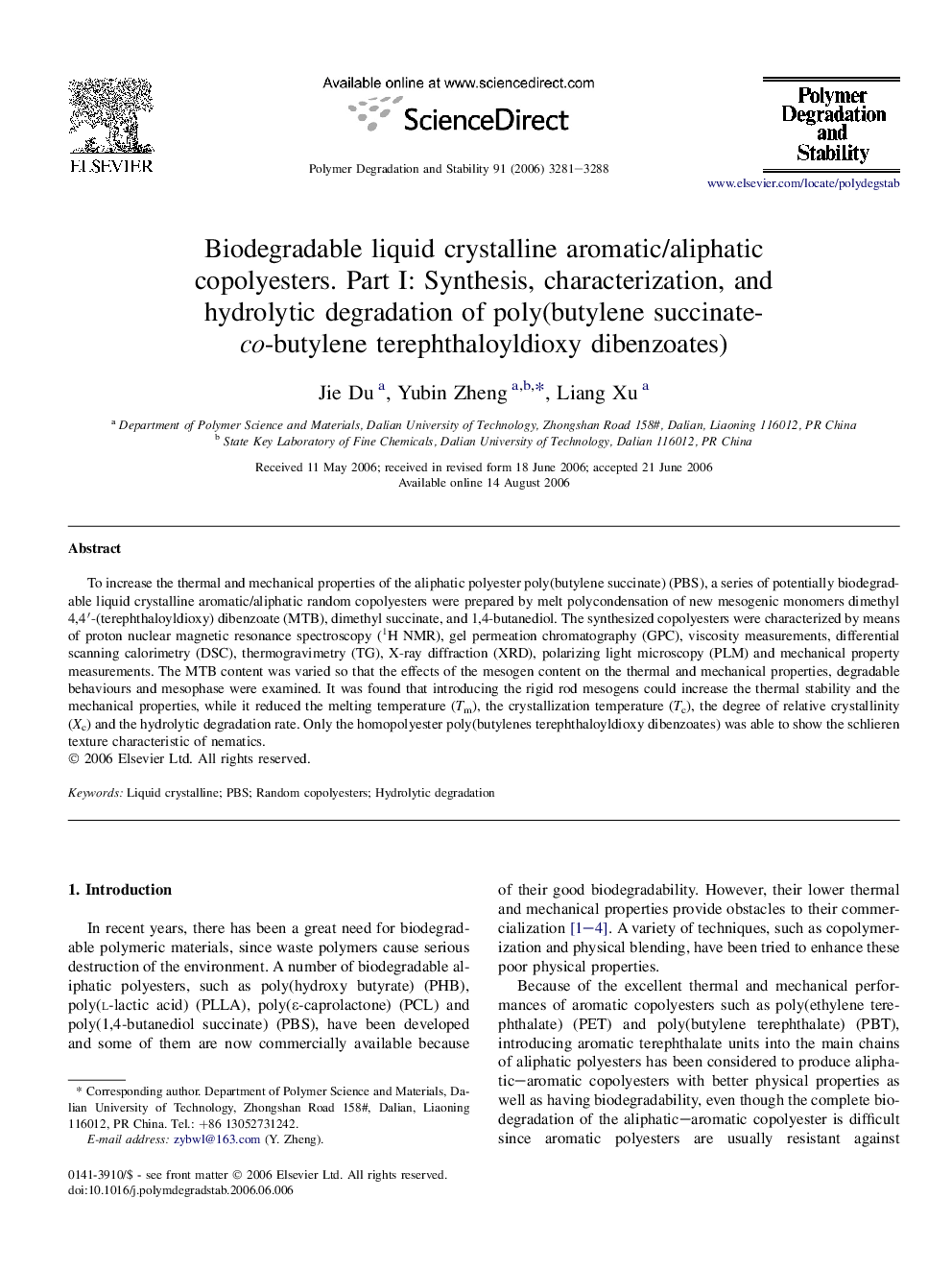| Article ID | Journal | Published Year | Pages | File Type |
|---|---|---|---|---|
| 5204964 | Polymer Degradation and Stability | 2006 | 8 Pages |
To increase the thermal and mechanical properties of the aliphatic polyester poly(butylene succinate) (PBS), a series of potentially biodegradable liquid crystalline aromatic/aliphatic random copolyesters were prepared by melt polycondensation of new mesogenic monomers dimethyl 4,4â²-(terephthaloyldioxy) dibenzoate (MTB), dimethyl succinate, and 1,4-butanediol. The synthesized copolyesters were characterized by means of proton nuclear magnetic resonance spectroscopy (1H NMR), gel permeation chromatography (GPC), viscosity measurements, differential scanning calorimetry (DSC), thermogravimetry (TG), X-ray diffraction (XRD), polarizing light microscopy (PLM) and mechanical property measurements. The MTB content was varied so that the effects of the mesogen content on the thermal and mechanical properties, degradable behaviours and mesophase were examined. It was found that introducing the rigid rod mesogens could increase the thermal stability and the mechanical properties, while it reduced the melting temperature (Tm), the crystallization temperature (Tc), the degree of relative crystallinity (Xc) and the hydrolytic degradation rate. Only the homopolyester poly(butylenes terephthaloyldioxy dibenzoates) was able to show the schlieren texture characteristic of nematics.
